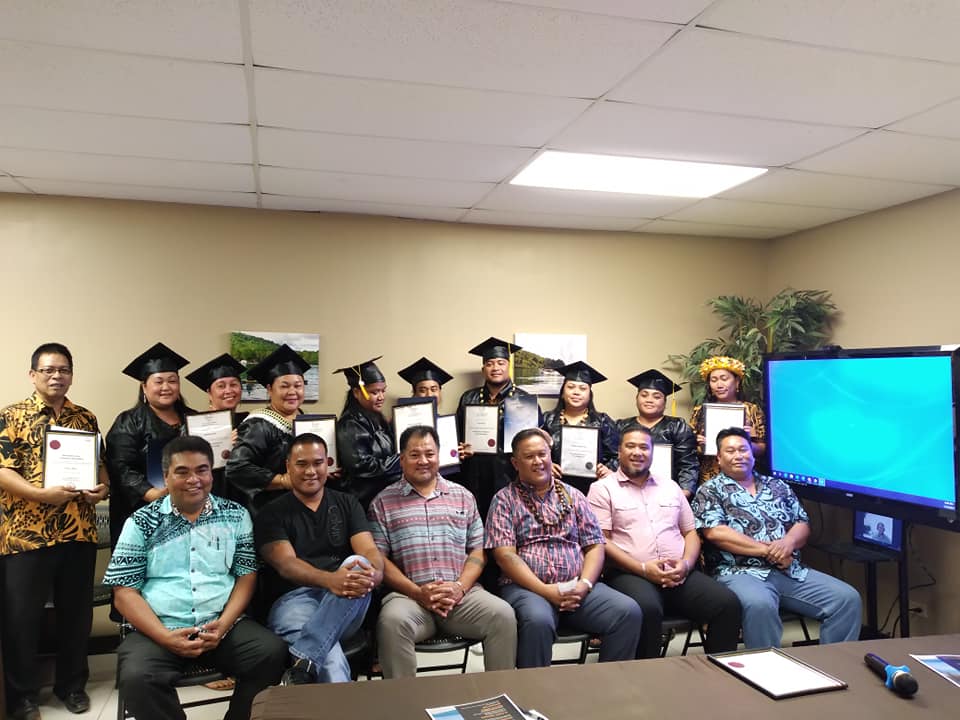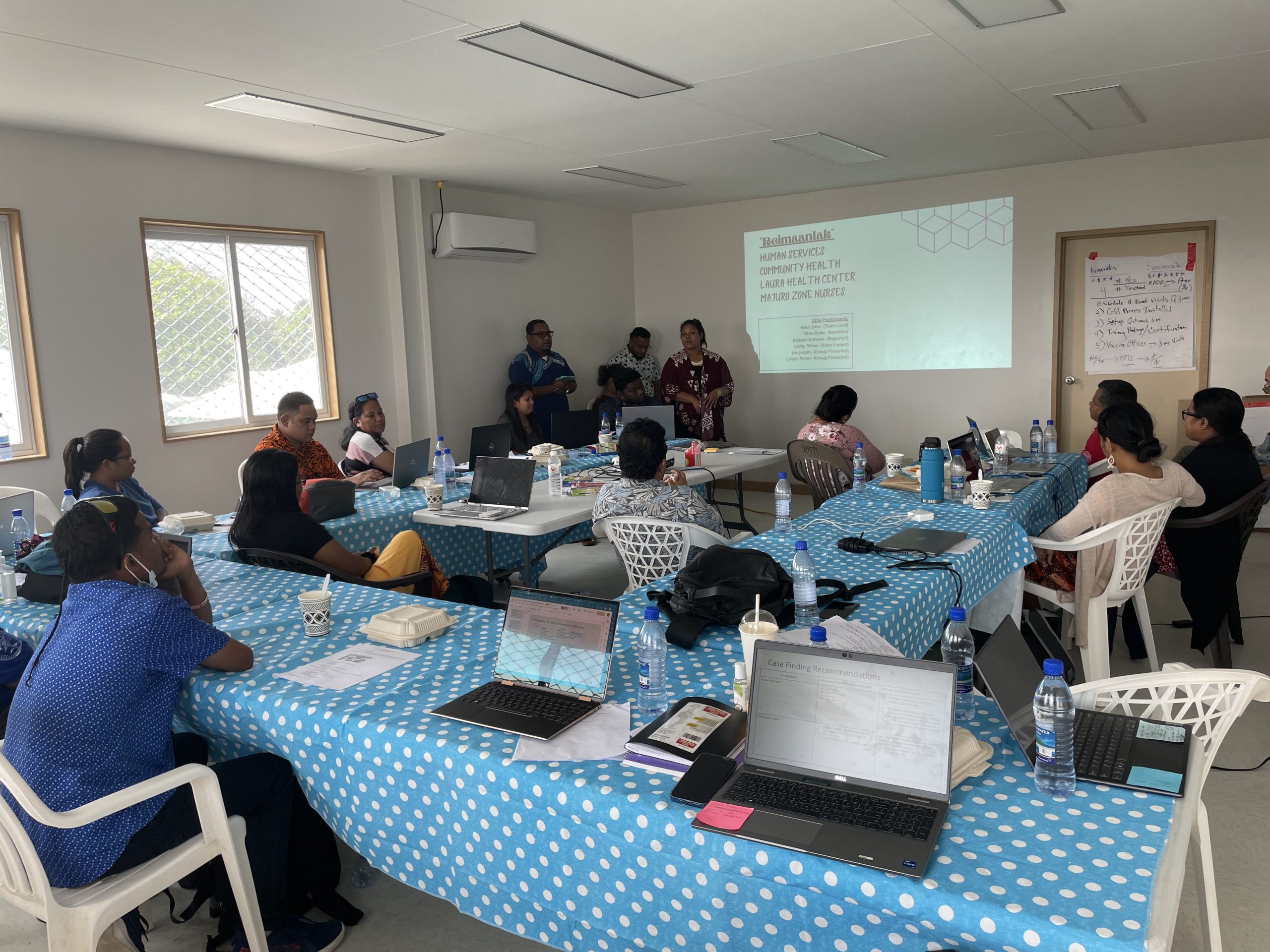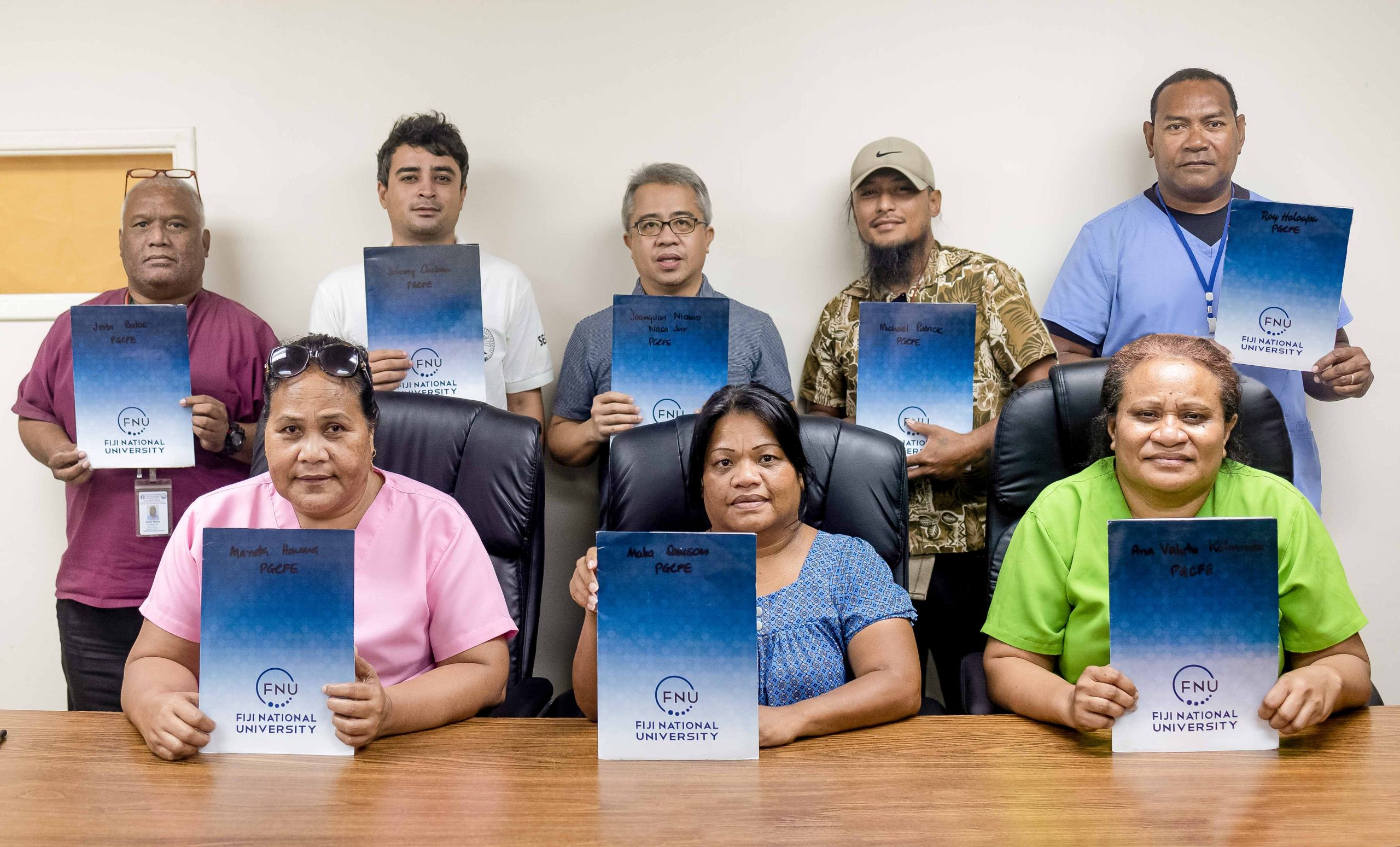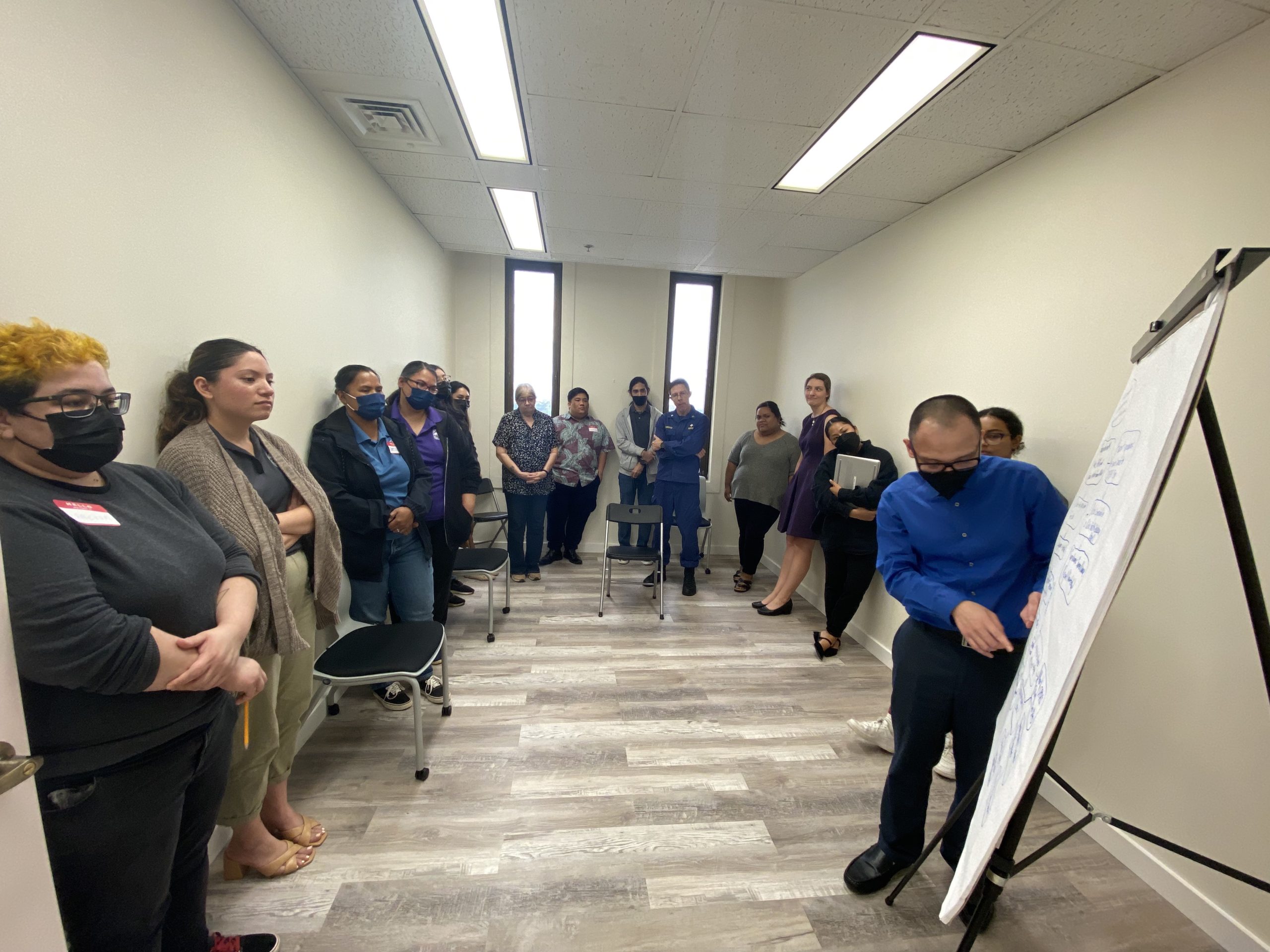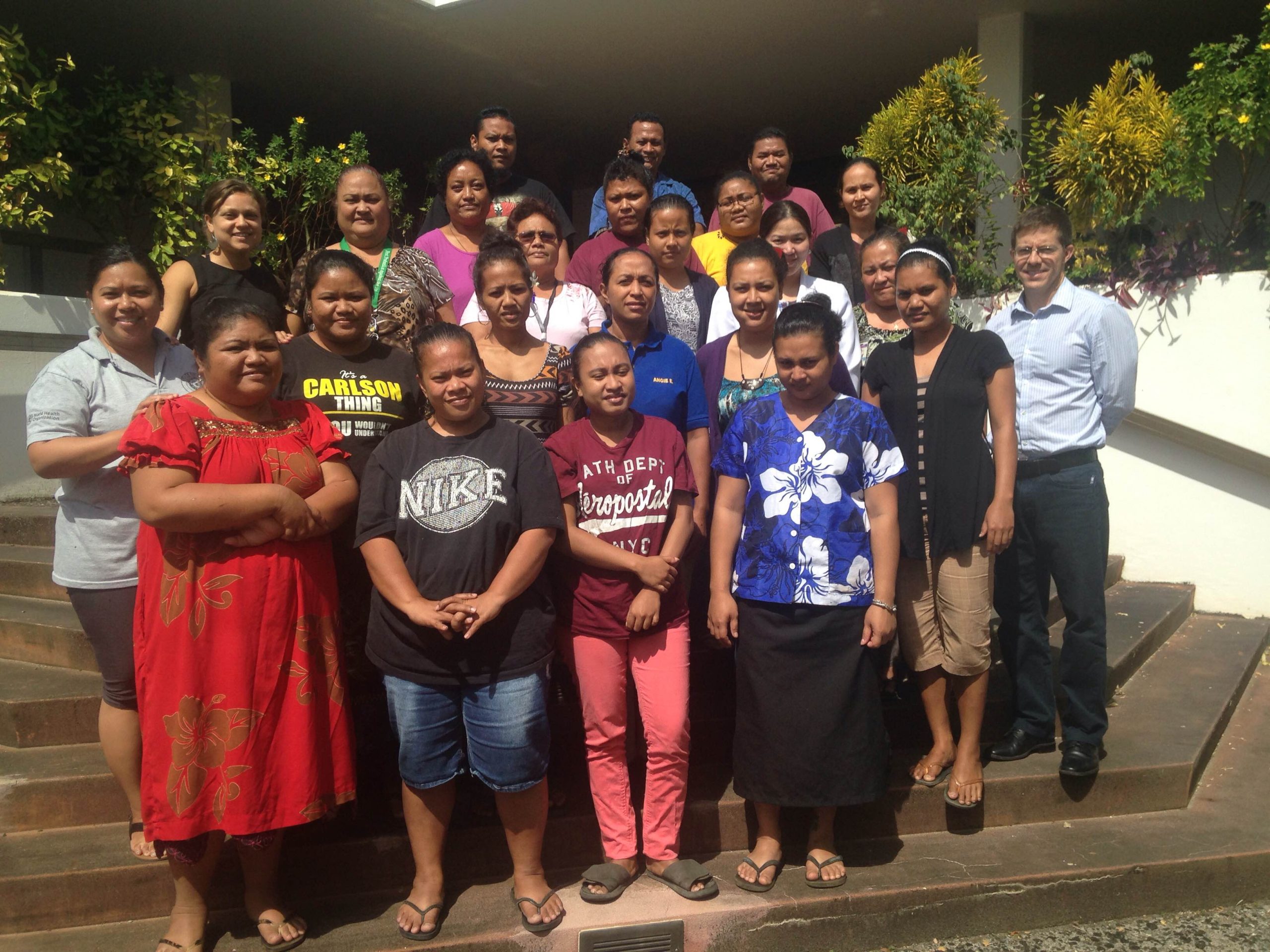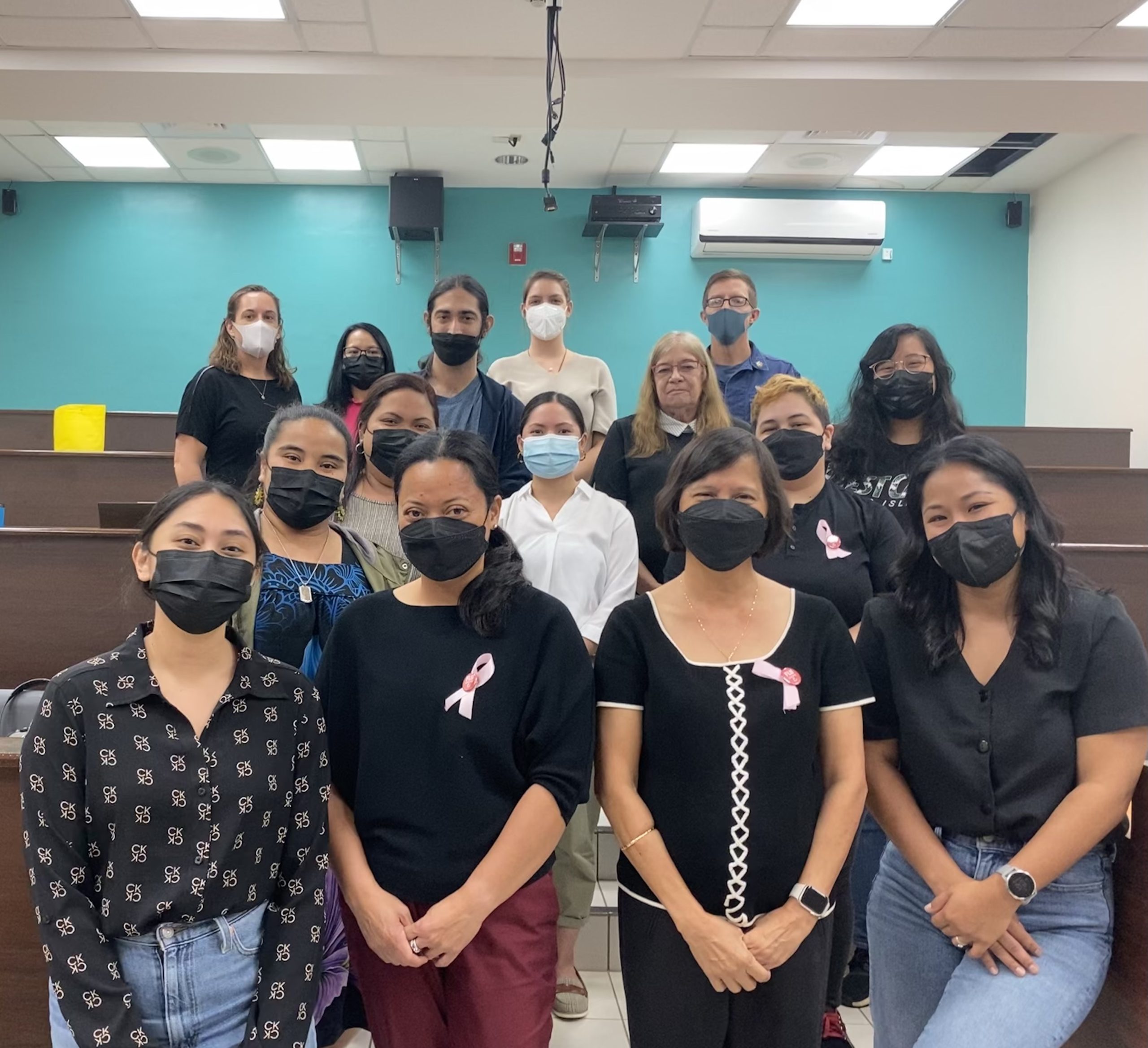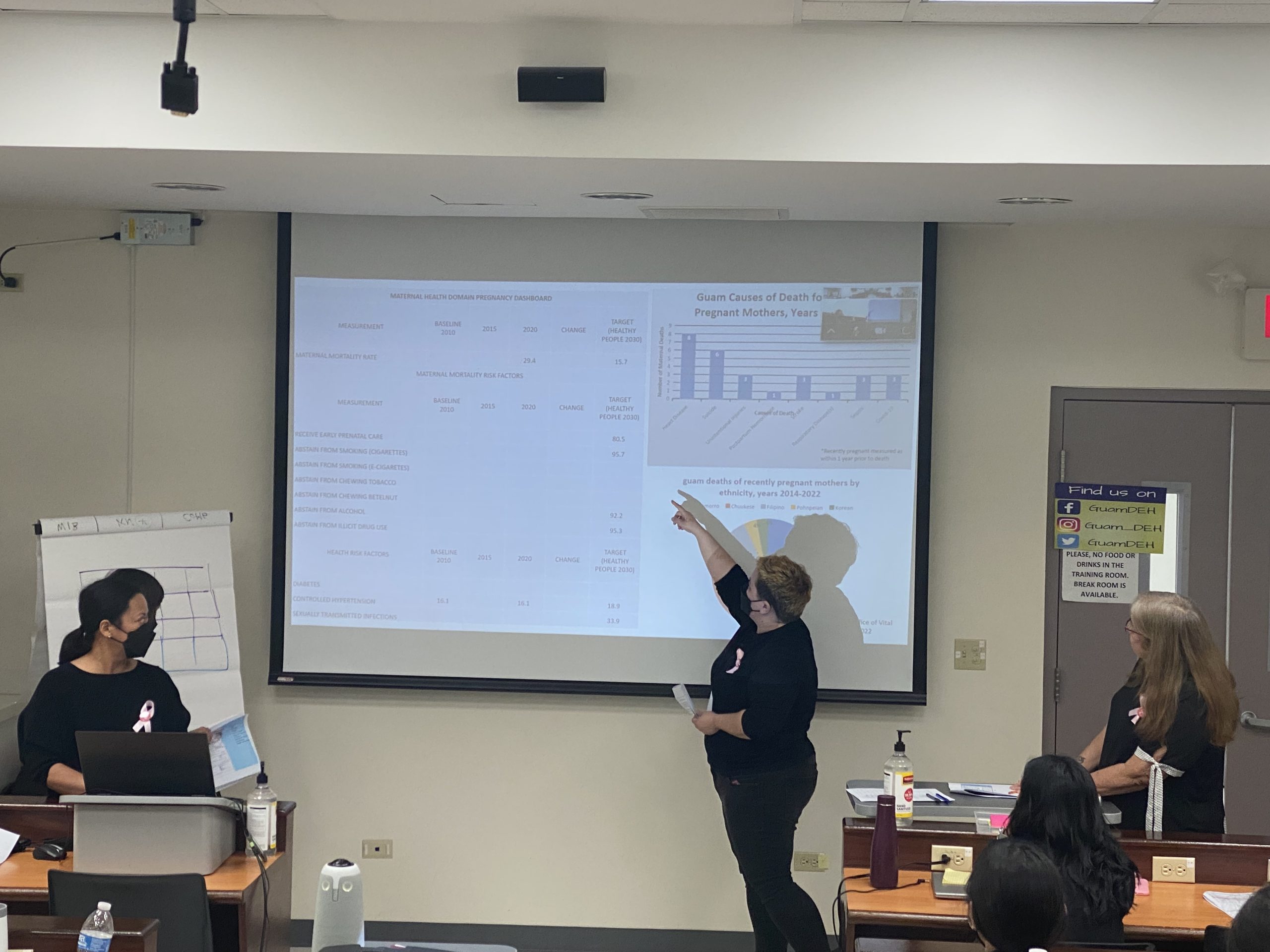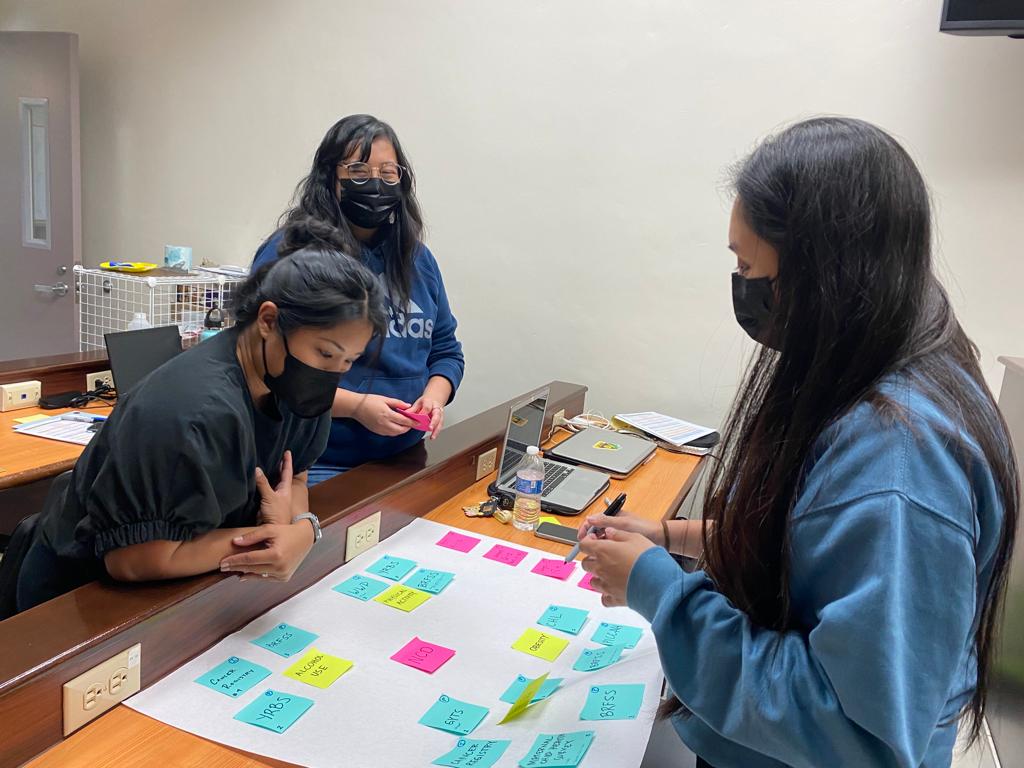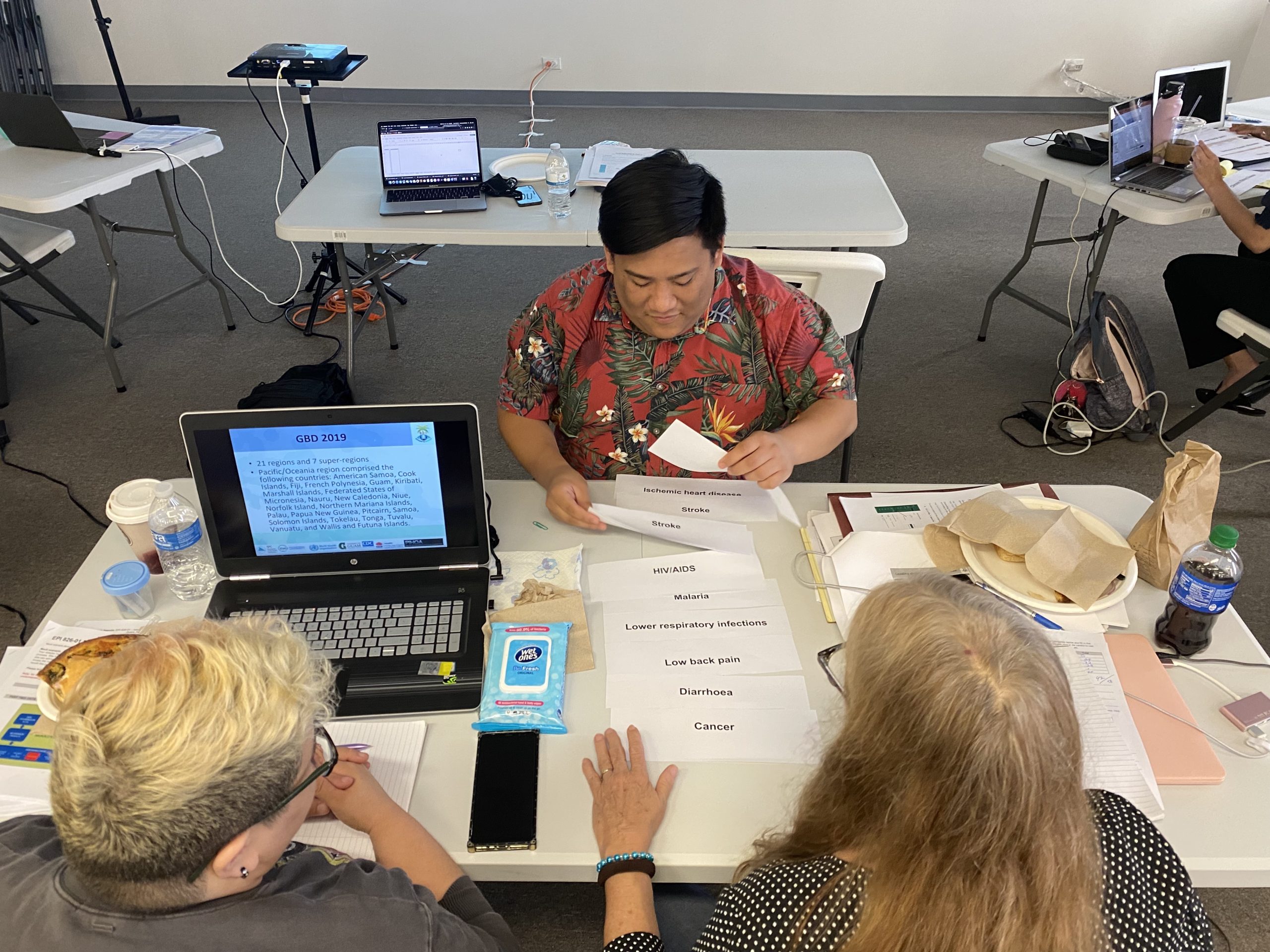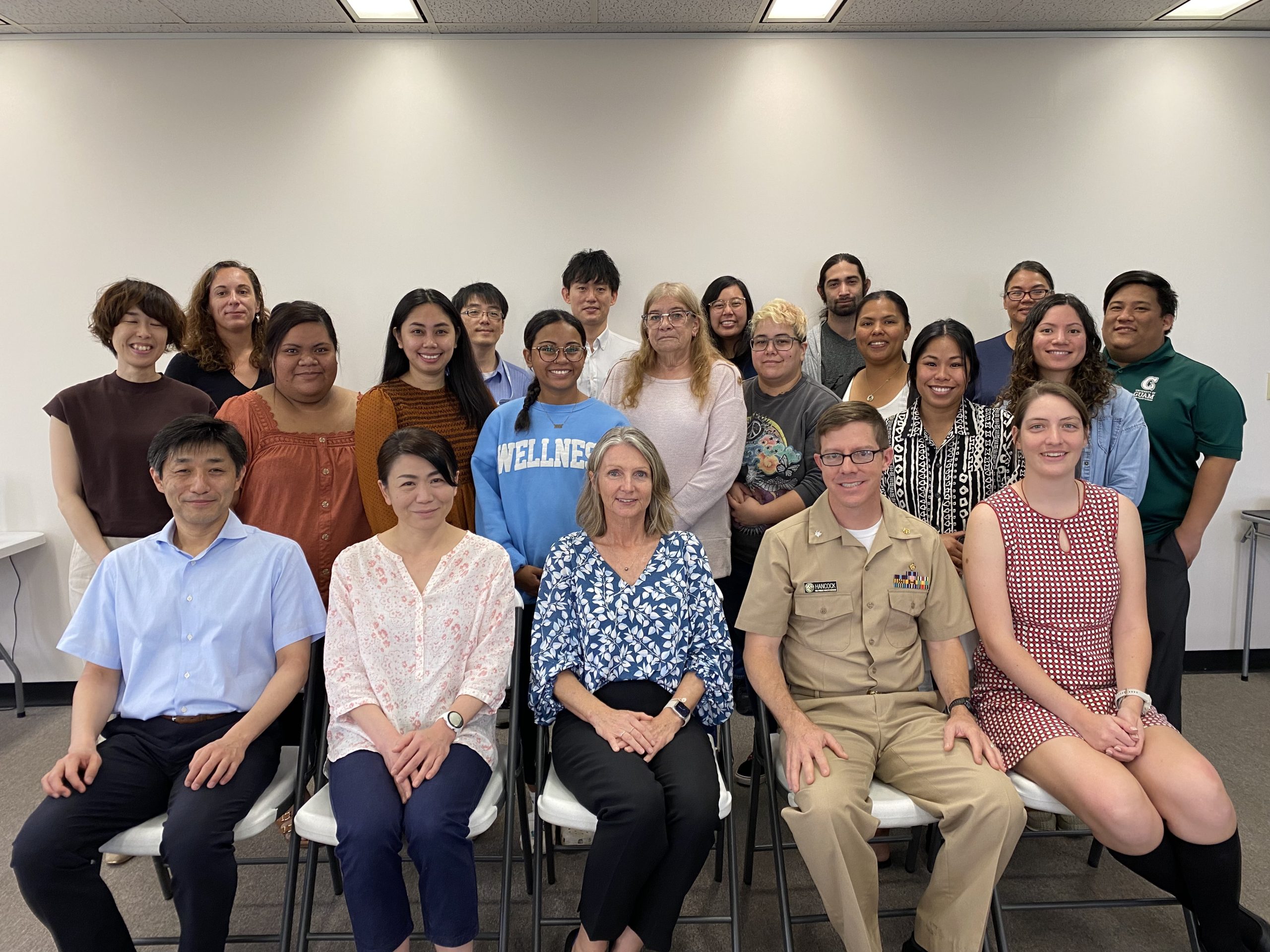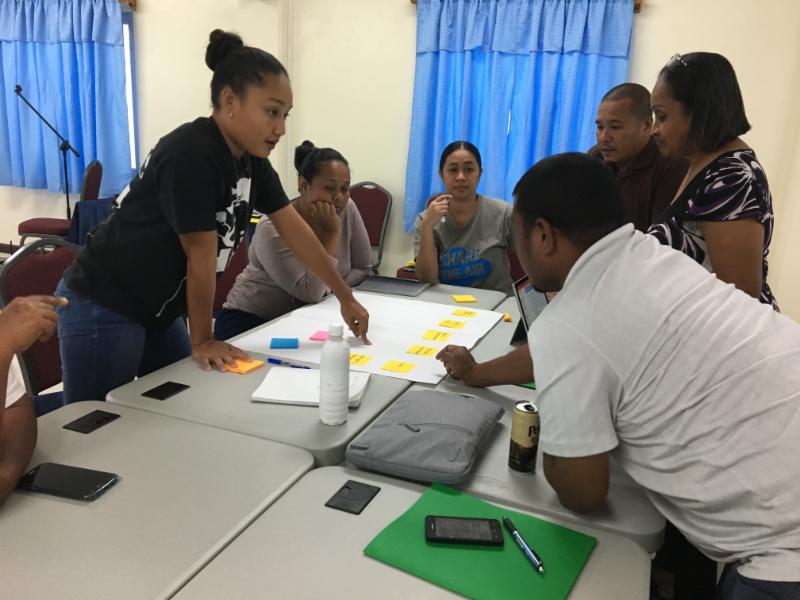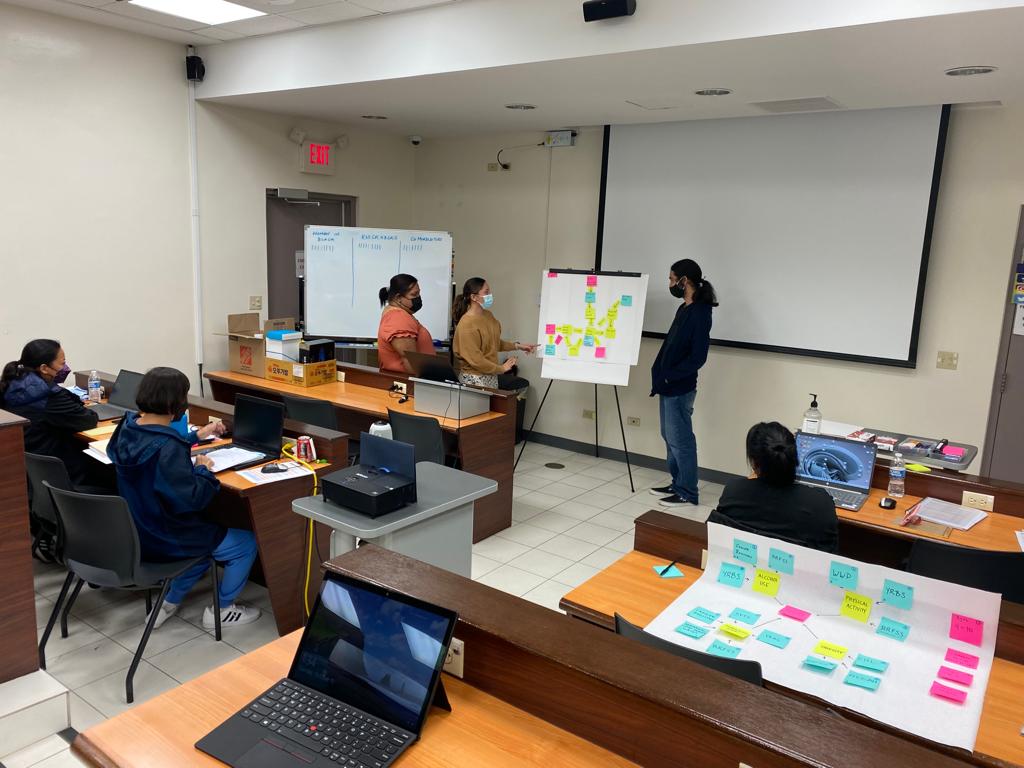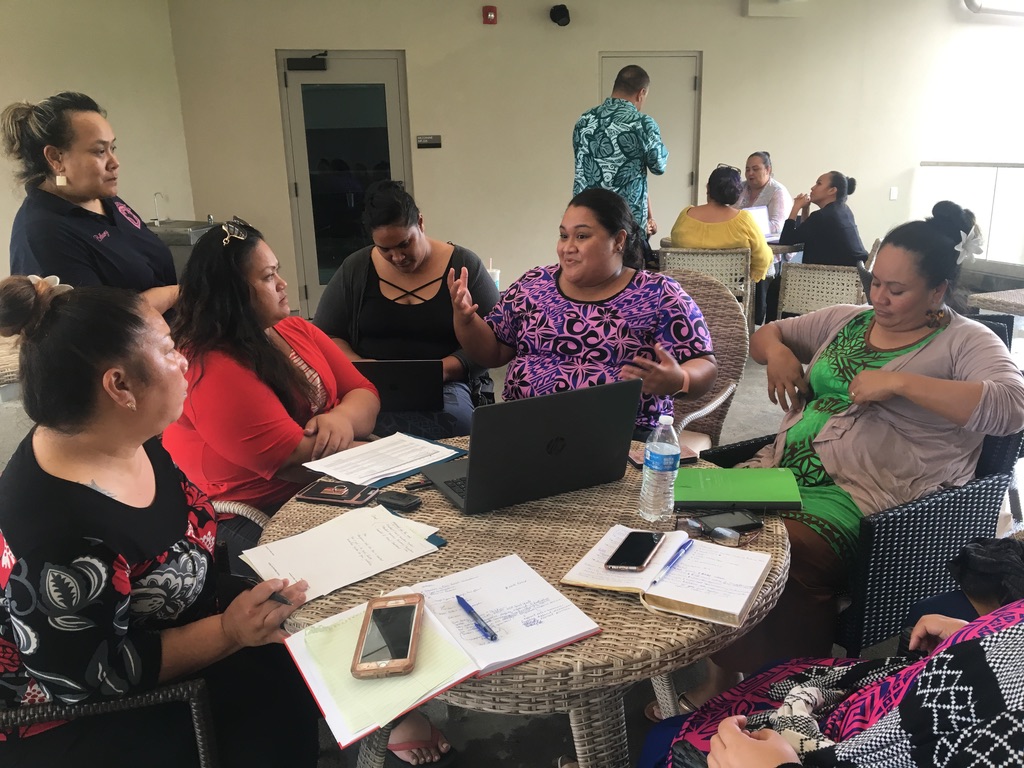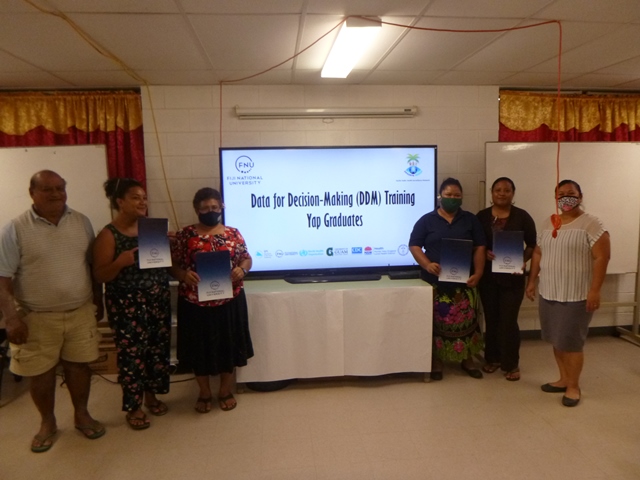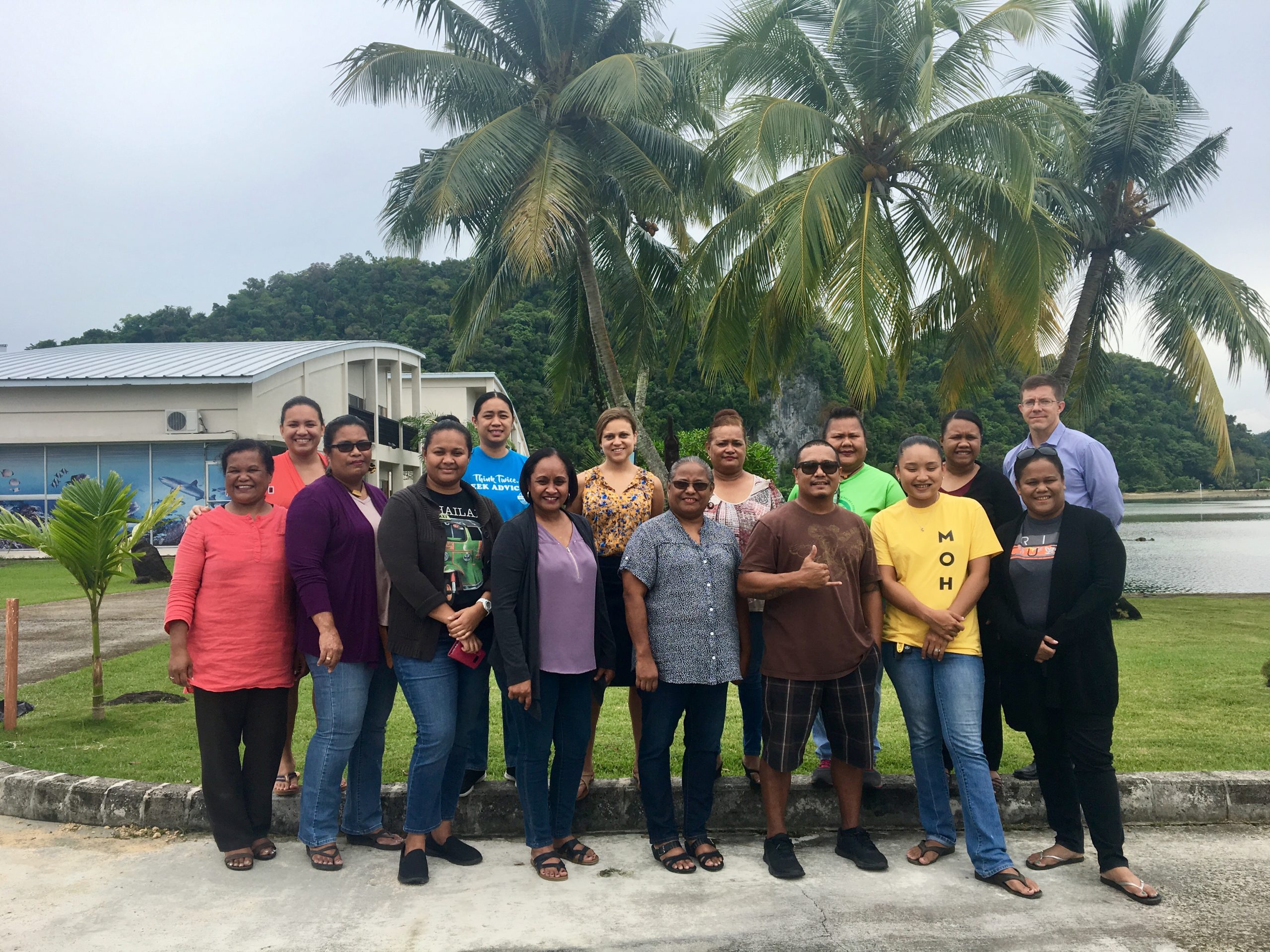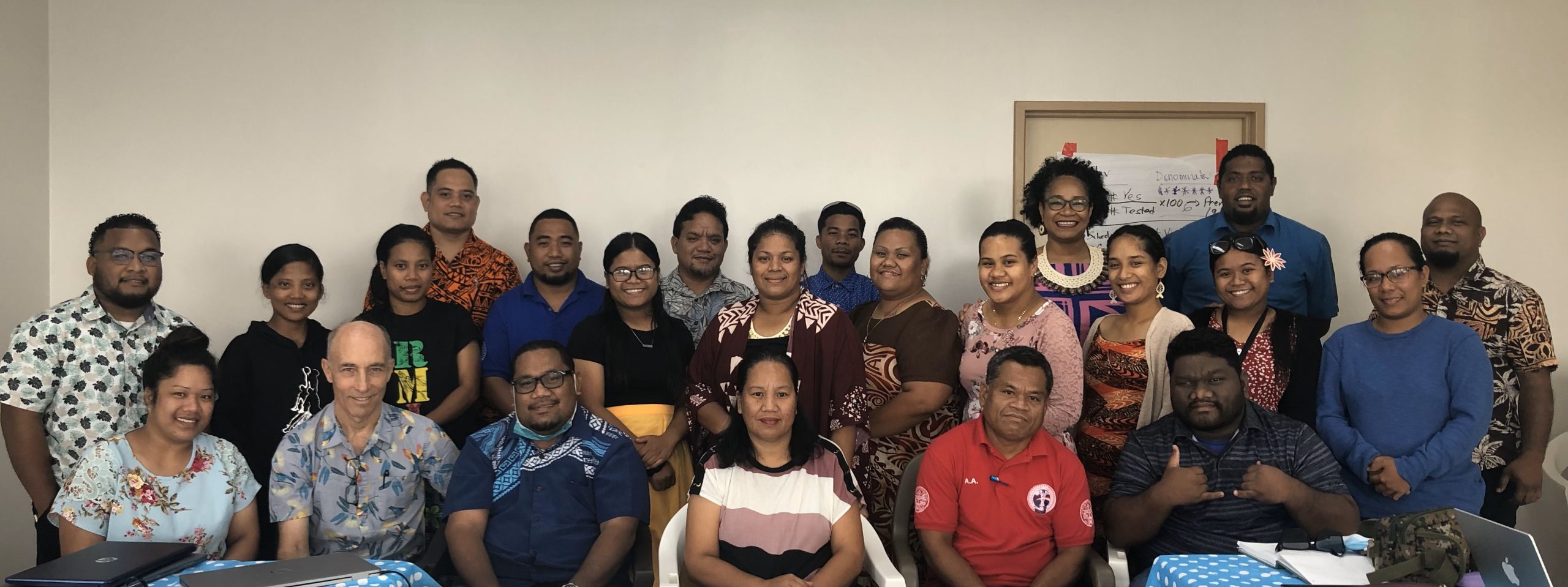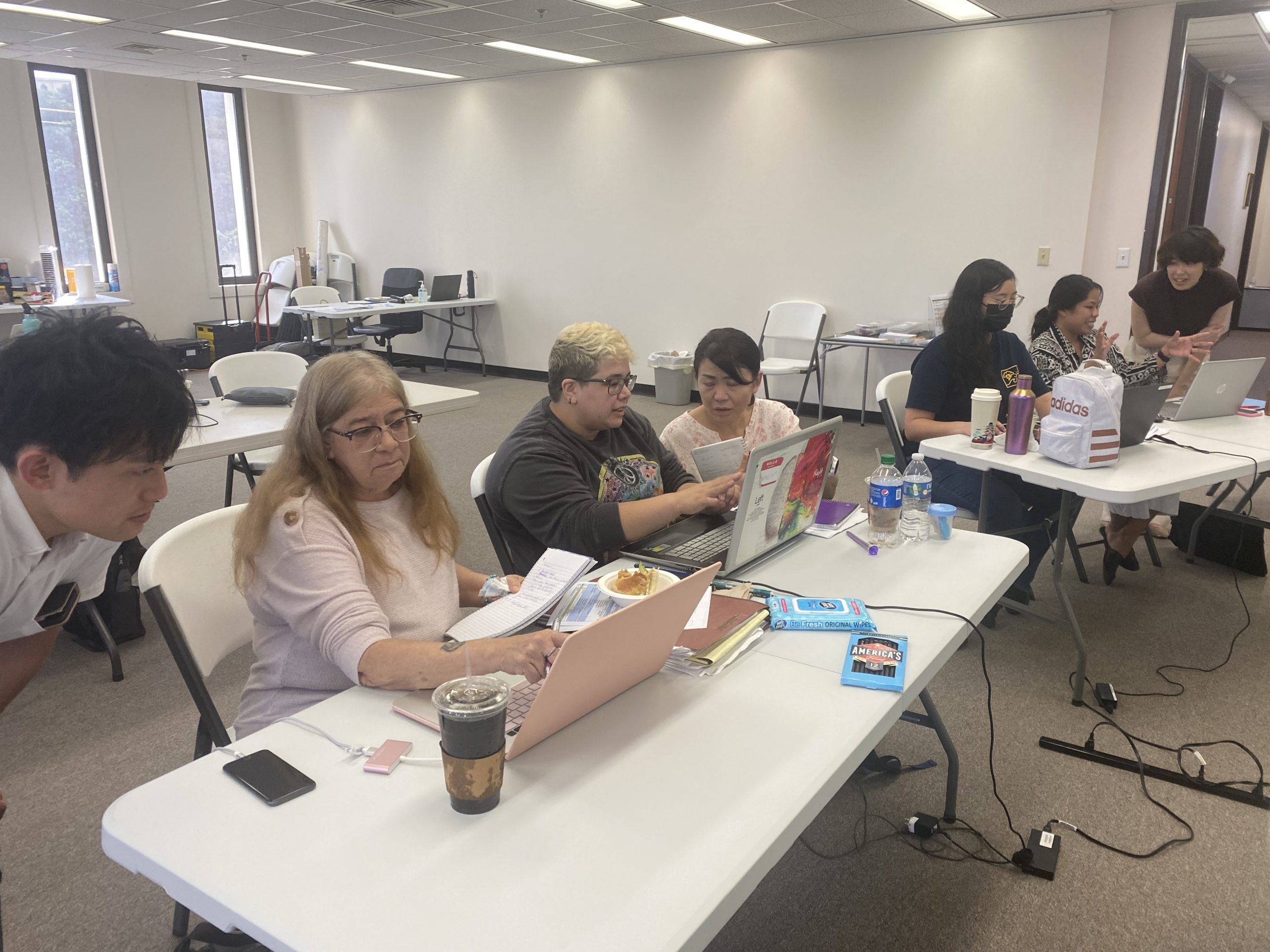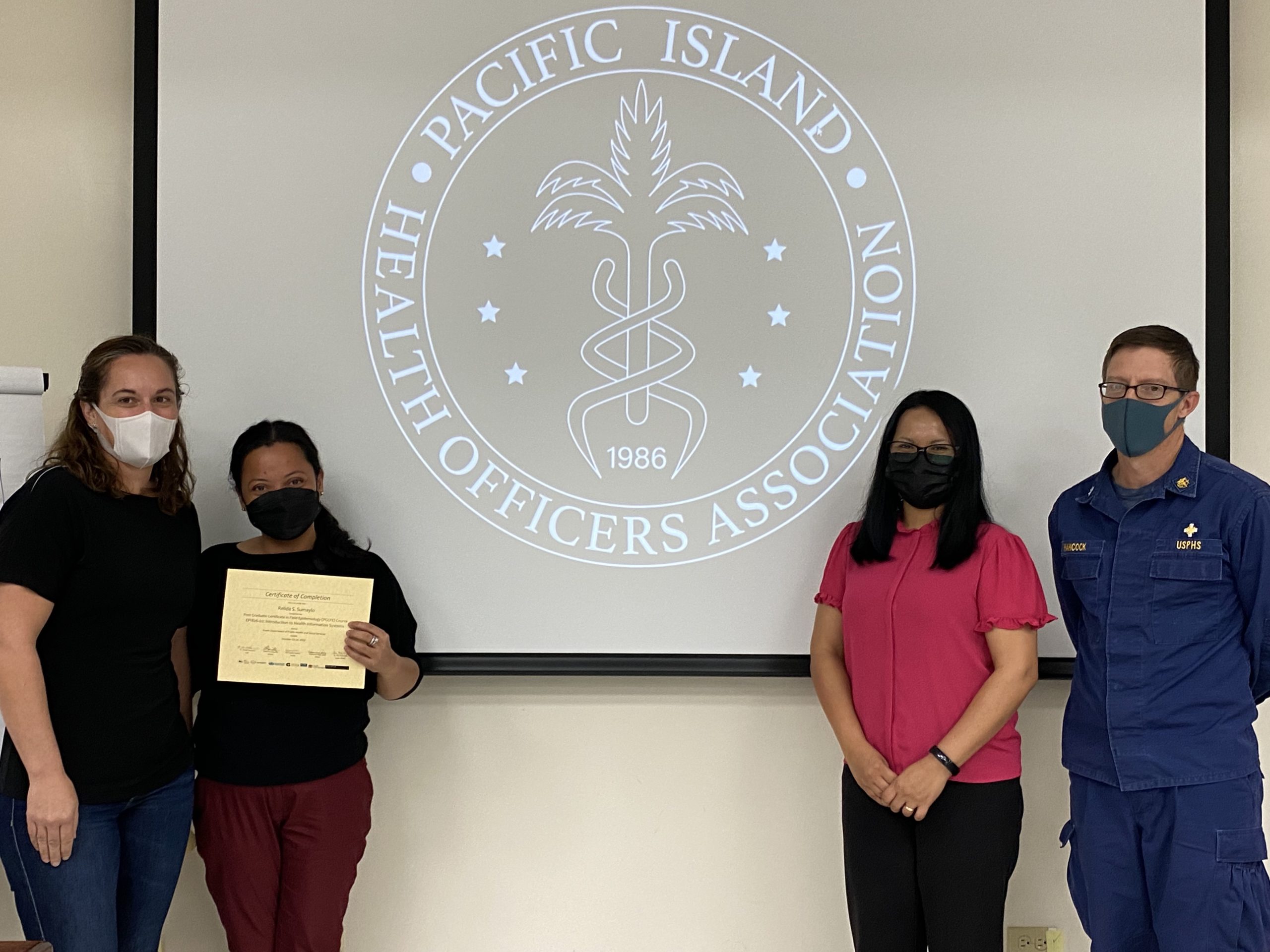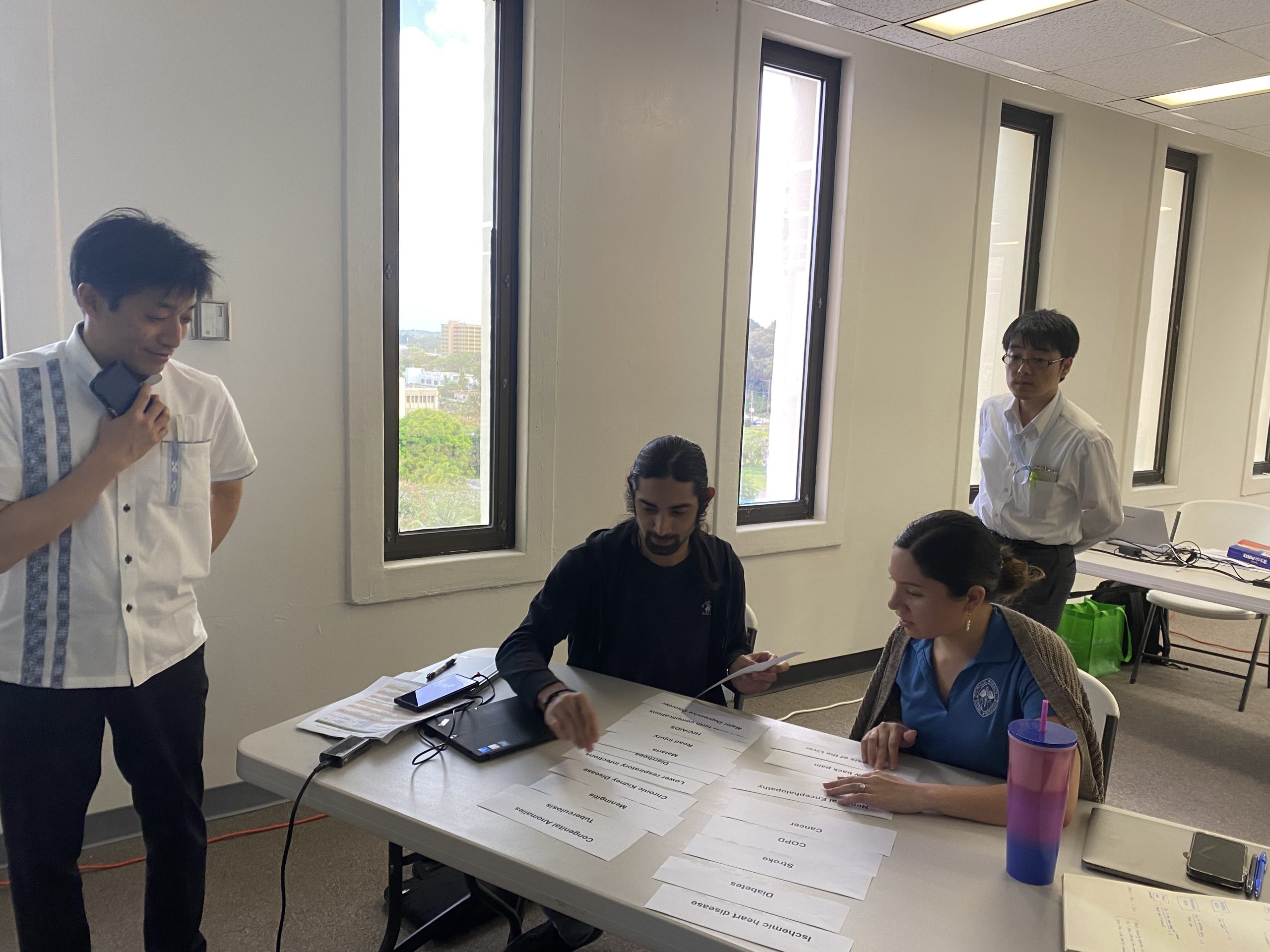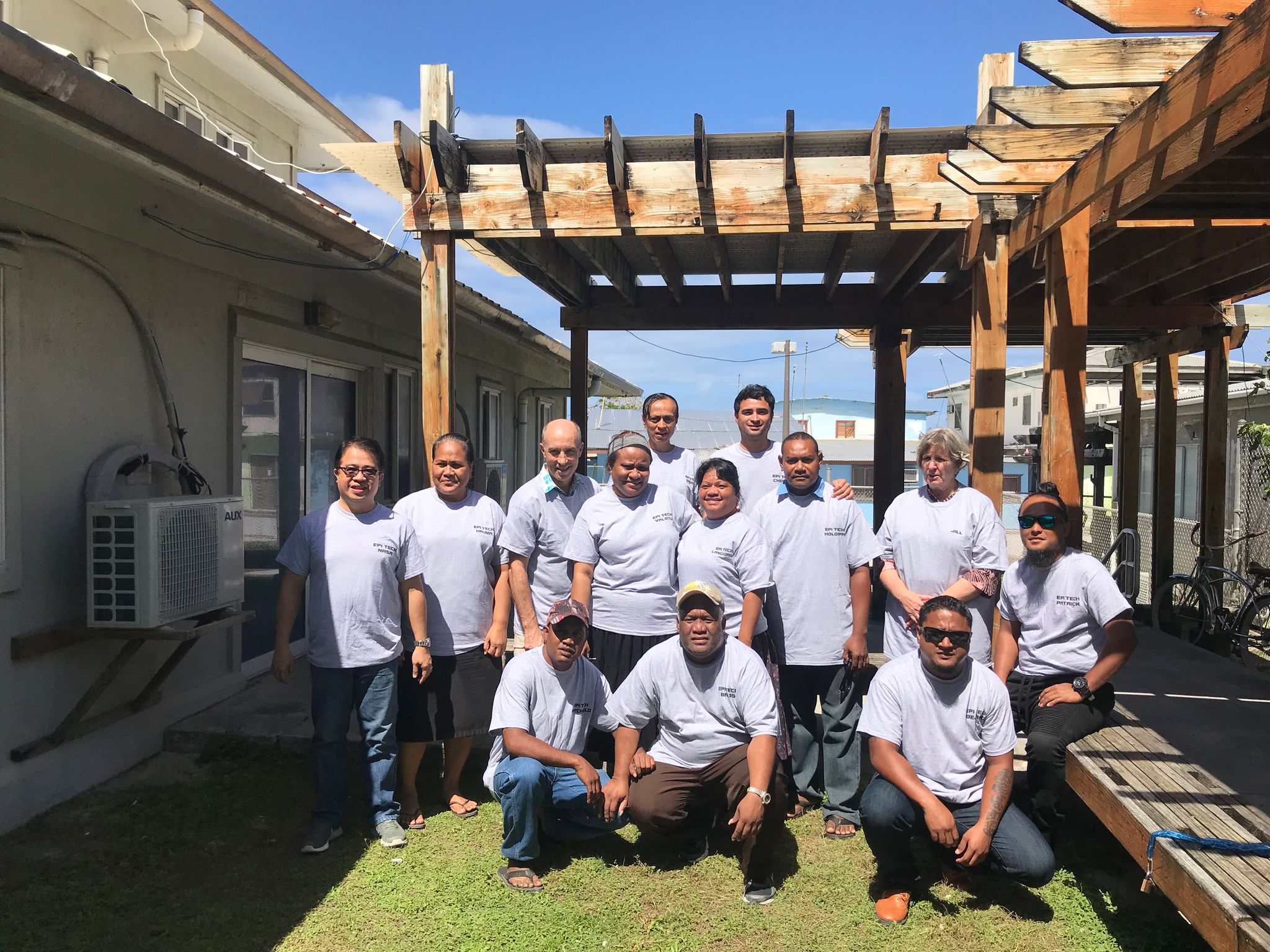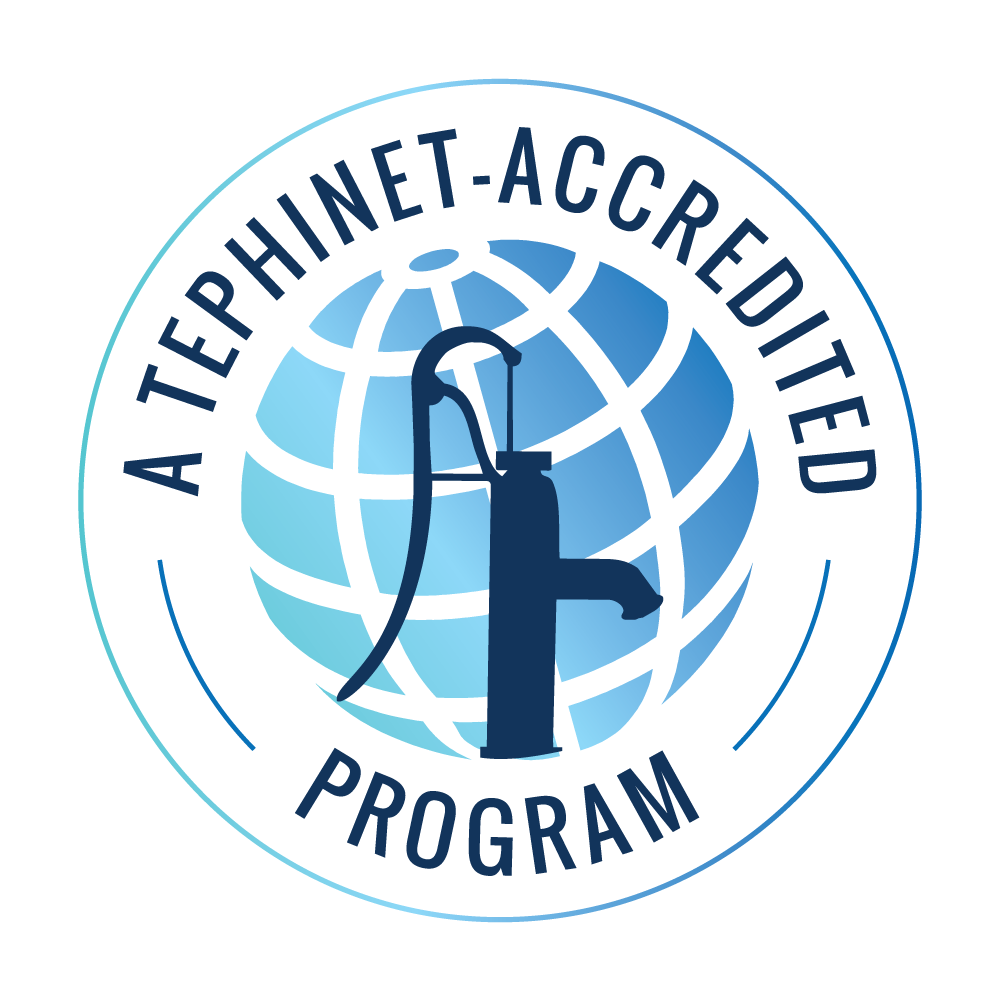
Strengthening Health Interventions in the Pacific (SHIP)
An accredited training program for meeting public health challenges in the Pacific by transforming data into action
Strengthening Health Interventions in the Pacific (SHIP) is a Field Epidemiology Training Program (FETP) modeled after the U.S. Centers for Disease Control and Prevention’s (CDC) FETP and has been adapted for the Pacific region. SHIP is a program of the Pacific Public Health Surveillance Network (PPHSN) supported by the Pacific Community (SPC). SHIP is accredited by the Fiji National University (FNU) and is jointly implemented by PPHSN partners.
Since 2015, PIHOA has been leading SHIP implementation in the U.S.-Affiliated Pacific Islands (USAPIs) of American Samoa, Federated States of Micronesia (FSM), Guam, Republic of the Marshall Islands (RMI), and Palau in close collaboration with CDC.
The SHIP program uses a workplace-based approach to strengthen health agency data literacy, epidemiology, and surveillance capacities and systems by:
Building a strong foundation of understanding and application of the principles of epidemiology and surveillance;
Training local health professionals in the management of health data; and
Developing and strengthening components of local surveillance and information processes and systems.
By strengthening my skills in preparing for and responding to natural disasters, the DDM training helped boost my confidence in making solid recommendations to the Head of State and agencies, traditional leaders, and the community.
With the knowledge I gained from DDM, I am now able to collect, record, analyze, report data in new ways, and use the data to plan, evaluate and make improvements in my workplace.
SHIP is planned and delivered in close collaboration with local health agencies. It is guided by local priorities and actively draws upon local information to connect classroom instruction with practical application in the workplace. Health agency staff are trained to use locally-sourced health information and data to develop and inform policies, practices, and programming, and to drive improvements in local surveillance and health information systems (HIS).
SHIP is comprised of three degree pathways. Applicants are required to register as students with FNU. After the completion of degree requirements, successful participants will be conferred the following:
Post-Graduate Certificate in Field Epidemiology (PGCFE)
Post-Graduate Diploma in Applied Epidemiology (PGDAE)
Master of Applied Epidemiology (MAE)

Each degree is comprised of didactic and project-based learning approaches often delivered over the course of 12 months. Participants learn by actively participating in a combination of classroom-based teaching and structured activities. Face-to-face sessions are supplemented by online self-study course materials and activities. Students plan, design, and implement selected projects prioritized by their respective workplace supervisors and health leadership utilizing local data and information.
Who Can Apply?
SHIP is designed for health professionals who have job duties that require the collection, management, analysis, or reporting of health or health-related data, and are committed to strengthen their data literacy and epidemiology/surveillance skills to execute their job duties with confidence and a high degree of competency. Typical applicants include, but are not limited to program staff, data/information system administrators and managers, and other administrative/management staff.
Eligibility Requirements:
- Bachelor’s degree, or 3+ years of health sector experience.
- Supervisor’s reference.
- Health agency endorsement.
Applicants without an undergraduate health degree or have less than the required years of professional experience, may be considered for enrollment on a case-by-case basis.
Why Participate in SHIP?
SHIP is designed to measurably improve in-country surveillance and health information systems. The training program aims to advance health security in the Pacific Region through the One Health approach to public health, environmental health, and animal health. As a result of this targeted effort, the Ministries/Departments of Health will strengthen their existing systems for collection, management, analysis, and interpretation of health data, and streamline the dissemination of information products to inform decision making.
SHIP Program participants will acquire the knowledge and skills to:
- Detect and respond to public health emergencies, such as disease outbreaks and non-communicable disease crises.
- Collect, analyze, interpret, communicate, and use health data for the purpose of informed decision-making.
- Design, conduct, and report on research projects.
- Evaluate and strengthen surveillance systems, as well as Health Emergency Preparedness and Response capacity.
Participants will also benefit by:
- Applying knowledge and skills directly in their own workplace and, by working in collaboration with their supervisor, develop and implement projects that meet identified health agencies.
- Being mentored by SHIP program faculty.
- Networking with other health professionals regionally and in-country, as well as with U.S. federal and international partners: CDC, PPHSN, SPC, WHO, and others.
Participants who successfully complete course modules and projects will receive degrees accredited by FNU. Tier 1 level courses will provide graduates with accreditation for a Post-Graduate Certificate in Field Epidemiology (PGCFE); Tier 2 graduates will earn a Post-Graduate Diploma in Applied Epidemiology (PGDAE), and Tier 3 graduates will receive a Master of Applied Epidemiology (MAE).
The SHIP program is delivered at no cost to qualified participants.
Degrees and Structure
SHIP is comprised of three degree pathways. Applicants are required to register as students with FNU. After the completion of degree requirements, successful participants will be conferred the following:
- Post-Graduate Certificate in Field Epidemiology (PGCFE)
- Post-Graduate Diploma in Applied Epidemiology (PGDAE)
- Master of Applied Epidemiology (MAE)
Each degree is comprised of didactic and project-based learning approaches often delivered over the course of 12 months. Participants learn by actively participating in a combination of classroom-based teaching and structured activities. Face-to-face sessions are supplemented by online self-study course materials and activities. Students plan, design, and implement selected projects prioritized by their respective workplace supervisors and health leadership utilizing local data and information.
Cost and How to Apply
SHIP is delivered at no cost to USAPI health professionals. For application forms and details, please send a request to ship@pihoa.org. Additional SHIP information can be found at the following links:
SHIP Program Information Sheet
Through DDM, we came to understand the importance of Risk Communication (especially in the era of COVID-19) and learned how to write Situation Reports that help to increase clarity and lower fear for the public.
Completing all four modules and a final project for the DDM course improved my skills in data analysis and public health surveillance and put the tools I learned to use in my daily work, including infographics, data reports/dashboards, workflow charts and standard operating procedures.
PGCFE Graduates Publications
High Prevalence of Non-Communicable Disease Risk Factors Among Adolescents in Pohnpei, Micronesia – Hawaii Journal of Medicine & Public Health: November 2018 Volume 77, No. 11
Delpihn Abraham BPH; Haley L. Cash PhD, MPH; A. Mark Durand MD, MPH;
Justin Denholm PhD, MPH+TM, MBioethics, BMed; Ada Moadsiri DrPH;
Sameer Vali Gopalani MPH, BA; and Eliaser Johnson DCHMS
Assessment of Gestational Diabetes and Associated Risk Factors and Outcomes in the Pacific Island Nation of Palau – Maternal and Child Health Journal: July 26, 2017
Mindy S. Sugiyama; Haley L. Cash; Christine Roseveare; Rumi Reklai1; Kliu Basilius1; and Sherilynn Madraisau1
Breast and Cervical Cancer Screening in Palau: Have we Improved Early Detection and Survival? – Hawaii Journal of Medicine & Public Health: December 2017, Volume 76, No. 12
Irish M. Tutii; Christine Roseveare MPH; Kerri Viney PhD, MPH;
Haley L. Cash PhD, MPH; Tmong Udui MPH; and Edolem Ikerdeu MA
Data for Decision-Making in Action
Data for Decision-Making Training on Guam in May 2015
Peer-Reviewed Articles
Contact Us
Ms. Hélène Le Mouëllic, MBA, MPH, PGCFieldEpi
SHIP Program Manager
Email: helenel@pihoa.org
Telephone: 671-735-3337
Address: PIHOA Guam Office
414 West Soledad Ave, Suite 906
Hagatna, GU 96910
SHIP Program Email
For all program inquiries:
Email: ship@pihoa.org
Telephone: 671-735-3337
Address: PIHOA Guam Office
414 West Soledad Ave, Suite 906
Hagatna, GU 96910

